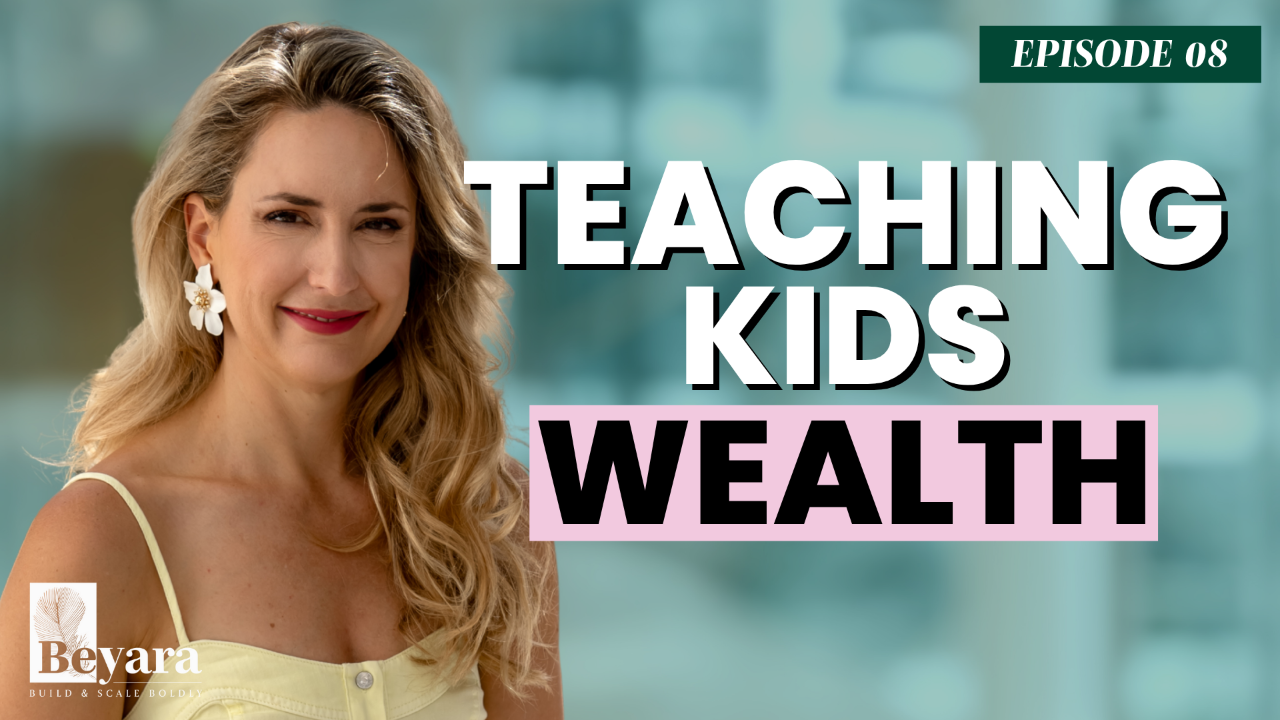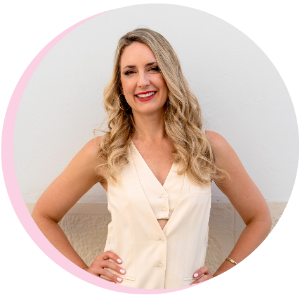What I’m Teaching My Kids About Financial Wealth (It’s Not Budgeting)

If you’ve ever found yourself wondering, “How do I raise financially smart kids?”—you’re not alone. Many of us have thought about teaching our children how to save, invest, and budget. Those are important skills, no doubt. But in our house, the conversation around financial wealth goes deeper.
Because the truth is, wealth isn’t just built on spreadsheets and savings accounts—it’s built on how you think.
In a recent conversation with my nine-year-old daughter (and later, my husband), I realized that the way we’re teaching her about financial wealth has almost nothing to do with numbers—and everything to do with mindset.
Here are the three core skills we believe will actually set her up for long-term abundance:
1. Problem Solving
When we talk about building financial wealth, the first skill we highlight isn’t budgeting—it’s thinking. Specifically, the ability to solve problems creatively and independently.
At Beyara, we call this radical common sense—the capacity to look at a challenge, ask “What’s the outcome I want?” and get to work creating it. That’s a CEO skill if there ever was one.
Problem-solving requires:
- Pattern recognition
- Vision-driven thinking
- Creative solutions, not just default reactions
Whether you’re building a business or navigating daily life, your ability to face the unknown and move forward with clarity is what makes you invaluable.
That’s what I want my daughter to learn: not to wait for someone else to fix things, but to ask, “What do I want—and how do I make that happen?”
2. Resourcefulness
Grit is good. But belief in your own ability to figure things out? That’s gold.
Resourcefulness is what allows you to take risks, bounce back, and adapt when the old way no longer works. It’s the internal confidence that even if you don’t know how yet, you trust that you can learn, pivot, and move forward.
And as any entrepreneur knows, that flexibility is essential. Markets shift. Systems break. What worked a year ago might fall flat today.
Resourcefulness isn’t just about persistence—it’s an identity. One that says: I’ll figure it out. I always do.
That belief is what gives you the courage to try new things and the resilience to keep going when it gets hard. It’s not just a business skill—it’s a life skill.
3. Influence
If there’s one wealth-building skill that doesn’t get nearly enough credit, it’s this: the ability to influence others.
Not in a manipulative way—but in a generous, human, value-driven way.
Influence means:
- Understanding what others need
- Building trust and rapport
- Creating alignment and shared outcomes
At Beyara, we see this show up in everything from team leadership to partnerships to sales. Every major opportunity I’ve had—from real estate deals to high-level collaborations—has come through relationships rooted in trust and value creation.
This is what I want to teach my kids: when you show up with care, curiosity, and service… doors open. People want to work with you. And abundance follows.
What This Has to Do With Your Business
You may not be teaching a 9-year-old right now—but if you’re leading a team, mentoring others, or even just growing your own leadership, these skills matter deeply.
Because whether you’re managing your household or scaling your business to seven figures, how you think is everything.
So here’s your invitation:
- Where could you be more resourceful?
- Where could you sharpen your problem-solving?
- Where could you deepen your ability to influence with trust and value?
These aren’t just parenting lessons. They’re CEO tools.
Want to Go Deeper?
We put together a list of the personal growth and business books that shaped the way we lead, parent, and build wealth—from the inside out.
👉 Download Leti’s Favorite Books List
Inside, you’ll find practical, powerful reads for you and your kids.
Because the best time to build these skills is yesterday.
The second-best time? Right now.
Reflection Question:
Where in your life or business are you defaulting to “I don’t know how”?
How would things shift if you believed, “I can figure this out”?




